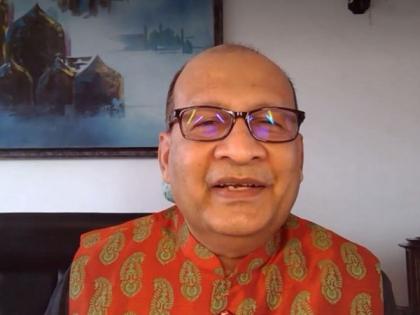Former Indian envoy slams WHO for investigating origins of COVID-19 after 14-15 months, calls it 'tokenism'
By ANI | Published: February 11, 2021 07:25 PM2021-02-11T19:25:13+5:302021-02-11T19:35:03+5:30
Former High Commissioner to Canada Vishnu Prakash on Thursday slammed the World Health Organisation (WHO) for investigating the origins of coronavirus in China after 14-15 months of the incident.

Former Indian envoy slams WHO for investigating origins of COVID-19 after 14-15 months, calls it 'tokenism'
Former High Commissioner to Canada Vishnu Prakash on Thursday slammed the World Health Orgsation (WHO) for investigating the origins of coronavirus in China after 14-15 months of the incident.
Speaking to in an interview, the former envoy said that he is "not inspired by the WHO findings under the present dispensation" and especially due to its track record amid the COVID-19 pandemic.
"The WHO did not share vital information about the pandemic. It, in fact, discouraged people from avoiding travelling. It is seen as an orgsation which is somewhat politicised. I will not be very sanguine about its findings," he said on WHO's findings of the origins of COVID-19.
He further said, "The research is taking place after 14 or 15 months of the incident. So by now, in my view, it is tokenism because the ground realities would have been changed by now. At least I am not inspired by the WHO findings under the present dispensation."
Weeks after a team of World Health Orgzation experts launched a probe into the origin of the COVID-19 in Wuhan, the global health body on Tuesday said that there is no evidence of coronavirus circulation in any mal species in China.
Speaking at a press conference, Peter Ben Embarek, the head of the WHO mission in Wuhan, stated four hypotheses on how the virus spread but reiterated that "laboratory incident hypothesis is extremely unlikely to explain the introduction of the virus into the human population".
"It has not been possible to pinpoint any mal species as a potential reservoir for this disease, and they indicate that currently and also back in 2019 it does not look like there was the circulation of the virus in any mal species in the country," he said.
He further said that "four main hypotheses or groups of hypotheses" have been identified on how the COVID-19 virus might have introduced among the humans."Our initial findings suggest that introduction through an intermediary host species is the most likely passway and one that will require more studies and more specific targeted research ... The findings suggest that a laboratory incident hypothesis is extremely unlikely to explain the introduction of the virus into the human population," the WHO expert said.
Speaking on whether the virus got leaked from Wuhan's institute of virology, he said, "We also looked at Wuhan's institute of virology... the laboratory and the state of the laboratory, and it was very unlikely that anything could escape from such a place. We also know that lab incidents are, of course, extremely rare."
( With inputs from ANI )
Disclaimer: This post has been auto-published from an agency feed without any modifications to the text and has not been reviewed by an editor
Open in app